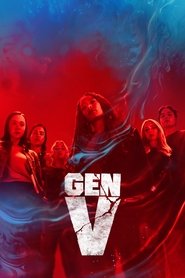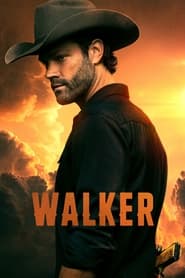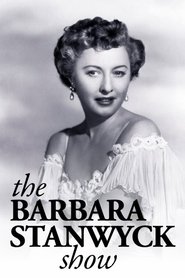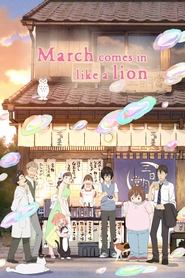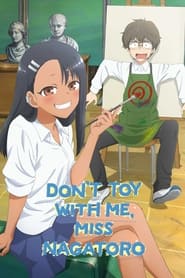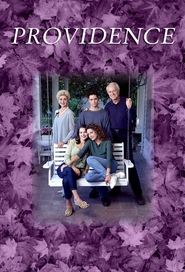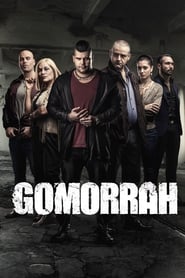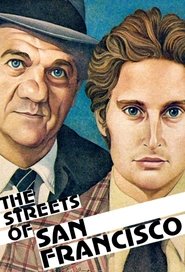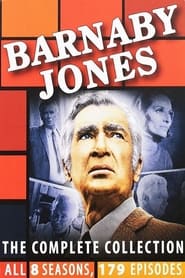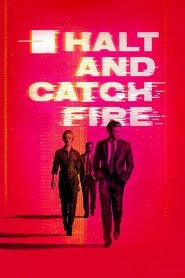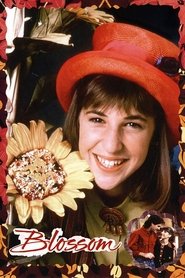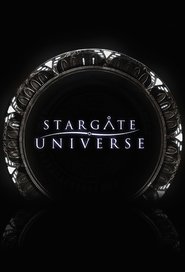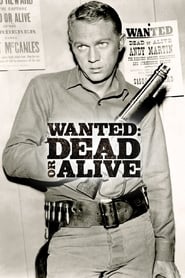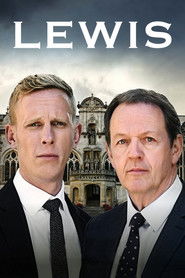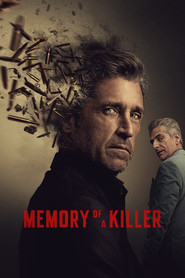Drama TV Series - Page 38
-
Gen V
2023
Gen V
2023
star 7.7At America's only college for superheroes, gifted students put their moral boundaries to the test, competing for the university's top ranking, and a chance to join The Seven, Vought International's elite superhero team. When the school's dark secrets come to light, they must decide what kind of heroes they want to become. -
Walker
2021
Walker
2021
star 7.1Cordell Walker, a widower and father of two with his own moral code, returns home to Austin after being undercover for two years, only to discover there's harder work to be done at home. -
The Barbara Stanwyck Show
1960
star 6.2An American anthology drama television series hosted by Barbara Stanwyck served. -
March Comes In Like a Lion
2016
star 8This is a gentle tale about people trying to regain something. And it is a tale of battle. Rei Kiriyama had lost his family in an accident when he was young. Now he is a 17-year-old pro shogi player who is burdened with deep loneliness. Rei lives alone in an old town in Tokyo, but after becoming acquainted with three sisters, Akari, Hinata and Momo, he begins to change little by little... -
DON'T TOY WITH ME, MISS NAGATORO
2021
star 8.2"A girl in a lower grade just made me cry!" One day, Senpai visits the library after school and becomes the target of a super sadistic junior! The name of the girl who teases, torments, and tantalizes Senpai is "Nagatoro!" She's annoying yet adorable. It's painful, but you still want to be by her side. This is a story about an extremely sadistic and temperamental girl and you'll feel something awaken inside of you. -
Catfish: The TV Show
2012
Catfish: The TV Show
2012
star 6.7Nev and his co-hosts -- from Max to Kamie to celebrity guests -- help people in dubious online relationships track down their baes IRL so they can sort out what's fact and what's fiction. -
Providence
1999
-
Gomorrah
2014
Gomorrah
2014
star 8.1Based on Robert Saviano's bestselling book, this gritty Italian crime drama paints a portrait of the brutal Neapolitan crime organisation the Camorra, as seen through the eyes of Ciro Di Marzo, the obedient and self- confident right-hand man of the clan's godfather, Pietro Savastano. -
The Streets of San Francisco
1972
star 7Two police officers, the older Lt. Stone and the young upstart Inspector Keller, investigate murders and other serious crimes in San Francisco. Stone would become a second father to Keller as he learned the rigors and procedures of detective work. -
Barnaby Jones
1973
Barnaby Jones
1973
star 6.9Barnaby Jones is a television detective series starring Buddy Ebsen and Lee Meriwether as father- and daughter-in-law who run a private detective firm in Los Angeles. The show ran on CBS from January 28, 1973 to April 3, 1980, beginning as a midseason replacement. William Conrad guest starred as Frank Cannon of Cannon on the first episode of Barnaby Jones, "Requiem for a Son" and the two series had a two-part crossover episode in 1975, "The Deadly Conspiracy". -
Halt and Catch Fire
2014
Halt and Catch Fire
2014
star 7.9During the rise of the PC era in the early 1980s, an unlikely trio - a visionary, an engineer and a prodigy - take personal and professional risks in the race to build a computer that will change the world as they know it. -
Blossom
1990
Blossom
1990
star 6.1Blossom Russo is a highly intelligent and spunky teenager. The youngest of three, she lives with her divorced musician father, Nick, eldest brother and recovering substance abuser Anthony, and decidedly not-so-bright middle brother Joey. Along for the ride is Blossom's ditzy best friend, Six, who sometimes shows flashes of great perception. -
Durarara!!
2010
Durarara!!
2010
star 7.7In Tokyo's downtown district of Ikebukuro, amidst many strange rumors and warnings of anonymous gangs and dangerous occupants, one urban legend stands out above the rest—the existence of a headless "Black Rider" who is said to be seen driving a jet-black motorcycle through the city streets. Mikado Ryuugamine has always longed for the excitement of the city life, and an invitation from a childhood friend convinces him to move to Tokyo. Witnessing the Black Rider on his first day in the city, his wishes already seem to have been granted. But as supernatural events begin to occur, ordinary citizens like himself, along with Ikebukuro's most colorful inhabitants, are mixed up in the commotion breaking out in their city. -
The Valley of The Wolves
2003
star 7.2Valley of the Wolves was a Turkish television drama which broadcast mainly on Show TV and then transferred to Kanal D, then atv for its last season. It was mostly about an agent named Polat Alemdar who leaked into the mafia after his plastic surgery. The scenario has direct and indirect references to the Turkish politics and political history from a viewpoint of an undercover agent. Valley of the Wolves became one of the most successful TV shows in Turkey and produced a successful feature film named Valley of the Wolves: Iraq. -
Classroom of the Elite
2017
star 8.4Kiyotaka Ayanokouji enrolls at the prestigious Tokyo Koudo Ikusei Academy, but is assigned to Class 1-D, where students with behavioral problems are housed. The school awards points equivalent to 100,000 yen per month and allows unusual freedom in classes, masking a more complex system. -
Stargate Universe
2009
Stargate Universe
2009
star 7.4The adventures of a present-day, multinational exploration team traveling on the Ancient spaceship Destiny many billions of light years distant from the Milky Way Galaxy. They evacuated there and are now trying to figure out a way to return to Earth, while simultaneously trying to explore and to survive in their unknown area of the universe. -
Wanted: Dead or Alive
1958
star 6.8Wanted: Dead or Alive is an American Western television series starring Steve McQueen as the bounty hunter Josh Randall. It aired on CBS for three seasons from 1958–61. The black-and-white program was a spin-off of a March 1958 episode of Trackdown, a 1957–59 western series starring Robert Culp. Both series were produced by Four Star Television in association with CBS Television. The series launched McQueen into becoming the first television star to cross over into comparable status on the big screen. -
Lewis
2007
Lewis
2007
star 7.6Inspector Robert Lewis and Sergeant James Hathaway solve the tough cases that the learned inhabitants of Oxford throw at them. -
Memory of a Killer
2026
Memory of a Killer
2026
star 7.2Angelo Doyle lives two totally separate lives — fearsome NYC hitman and sleepy upstate Cooperstown photocopier salesman and father. Both of them are threatened when he is diagnosed with Alzheimer's, a disease he already lost his older brother to.
